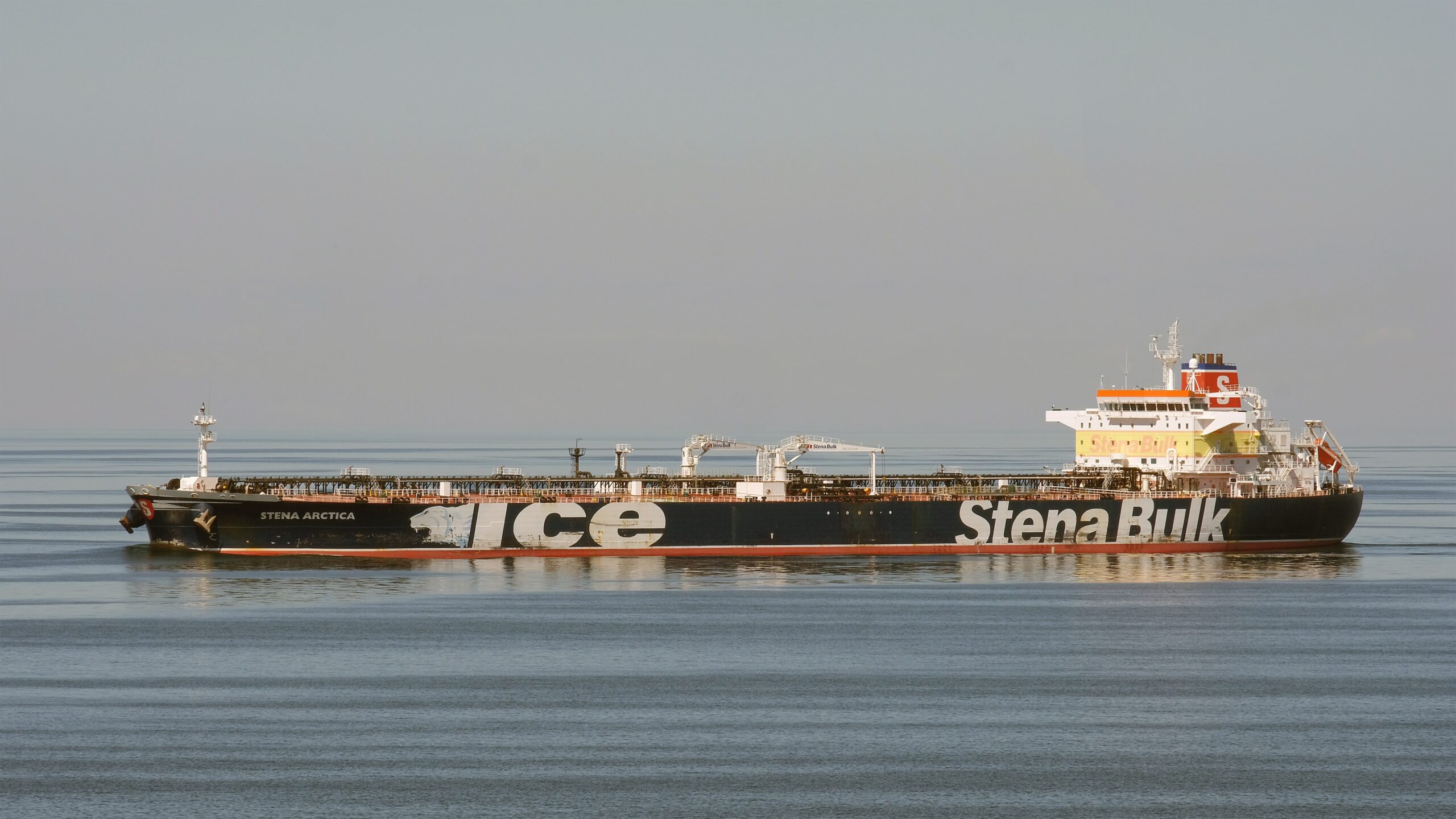

Governments impose sanctions on countries, businesses, or individuals to punish violations of international law. Sanctions are a tool for resolving conflicts by exerting economic and diplomatic pressure on designated targets rather than through military means. Common types of sanctions include embargoes, trade and investment bans, and asset freezes.
Because sanctions often restrict the movement of goods across international borders, firms operating in the maritime sector must pay them particular attention to avoid breaches. This article explains the sanctions that affect maritime shipping firms, the risks and regulations these firms need to be aware of, and how to comply with sanctions.
Which sanctions affect maritime shipping?
Sanctions often take the form of import and/or export embargoes. These ban the buying or selling of specific goods from or to a designated entity. Arms embargoes, which prevent the trade of weapons, are a common type of trade restriction levied by governments.
A related form of sanctions is transport sanctions. These restrict individual vessels’ movement, registration, or ownership and are often imposed on vessels or operators carrying goods on behalf of sanctioned entities. In September 2024, the UK government introduced sanctions against ten ships belonging to an illicit ‘shadow fleet’ trading Russian oil.
To avoid facilitating sanctions breaches, maritime shipping businesses should stay updated on the latest sanctions lists.
Global sanctions regulations for maritime shipping firms
Sanctions regimes are often consistent across countries with aligned geopolitical priorities. Governments often impose co-ordinated sanctions with their allies, while the United Nations (UN) issues sanctions for its member states to transfer into domestic law. However, each jurisdiction maintains its own sanctions program, and firms should consult the relevant legislation for the areas they operate in. Important global sanctions regimes shipping firms should be aware of include:
- US sanctions: The United States’ sanctions regime is upheld by the Office of Foreign Assets Control (OFAC). The Specially Designated Nationals (SDN) List contains the individuals, entities, and vessels sanctioned by the US. The US Bureau of Industry and Security (BIS) also maintains Persons of Concern lists, including the Denied Person List. These list foreign entities subject to Export Administration Regulations (EARs, which restrict the export of certain goods. In October 2024, OFAC released a communiqué detailing sanctions guidance for the maritime industry.
- UK sanctions: The Treasury maintains the United Kingdom’s sanctions lists of the United Kingdom. The Office of Financial Sanctions Implementation (OFSI) is responsible for implementing, advising on, and enforcing these sanctions, which include trade restrictions and other economic measures. In September 2024, OFSI updated its trade, aircraft and shipping sanctions guidance, advising on specific risks and common evasion tactics. The Department for Transport also implements sanctions against naval vessels.
- EU sanctions: The European Union maintains a comprehensive sanctions program, although implementation is generally the responsibility of individual member states. As of 2024, there were over 30 sanctions programs, including sanctions relating to the maritime world: for example, Russian vessels are banned from entering EU ports. The EU publishes consolidated lists of economic sanctions and travel bans.
In many jurisdictions, sanctions violations in the shipping industry can result in significant civil and criminal penalties, including fines and prison sentences. Firms linked to sanctions breaches can also suffer serious reputational damage and see their business growth fall as a result. Accordingly, firms operating within the industry should understand their sanctions risks, and how they can stay compliant.
Sanctions challenges for the maritime industry
The nature of the global maritime shipping industry means it faces specific sanctions risks. These include:
- The frequency of sanctions designations: Entities are added to sanctions lists regularly, with a given list often updated multiple times a week. The US, for example, made 2,500 additions to its primary sanctions list in 2023. To avoid inadvertently trading with sanctioned entities, firms must make sure their sanctions data is updated often enough to capture all these changes. Entities can also be removed from sanctions lists, and firms must be careful not to unnecessarily de-risk by continuing to block relationships with these customers.
- The complexity of supply chains: Shipping requires vessels to move cargo through a series of handlers and jurisdictions. The complexity of this process affords criminals opportunities to alter or disguise shipping information or exploit regulatory differences between countries to evade sanctions.
- Obtaining beneficial ownership information: Ownership structures relating to shipping vessels can be extremely complicated and opaque. Each vessel operates under the flag of the country it is registered in, whose laws it must comply with. However, it may be operated by a firm in a different country and owned by an entity in yet another one. This can make establishing control of vessels difficult, especially when complicated corporate structures are used to obfuscate ownership.
- Screening requirements: The complexity of maritime shipping requires firms to screen several parties for possible sanctions violations, including vessel captains, port authorities, insurance companies, crewing companies, traders, and suppliers. In practice, these roles can be fluidly defined across different companies and jurisdictions, which can cause a lack of clarity when screening.

The evolving use of sanctions
Learn more about the fast-changing international sanctions landscape with our expert guide. Get your free copy today.
Download your copyMaritime sanctions compliance best practices
While the compliance challenges facing maritime shipping firms are significant, there are certain essential steps these businesses should take to mitigate their risks and strengthen their sanctions compliance, including:
- Risk assessments: Firms must take a risk-based approach to sanctions compliance. This means examining their customer base, their products and services, and the jurisdictions they operate in to anticipate where they are likely to face risks, then allocating compliance resources to these areas. Risk assessments should be conducted frequently enough to capture changing risk levels.
- Due diligence: Firms should conduct appropriate know your customer (KYC) and customer due diligence (CDD) processes on their customers. This means gathering identifying information, understanding the nature of the proposed business relationship, screening customers against sanctions lists, and establishing ultimate beneficial ownership. When onboarding new customers, firms should assign them risk scores, with higher-risk customers subject to enhanced due diligence (EDD) measures. The maritime industry has specific requirements for identifying information, such as shipping routes, end-user certification, and the origin and destination of goods; firms should collect all the necessary data and ensure they know both their customer and their customer’s customer.
- Ongoing monitoring: Even after onboarding, firms should continue to monitor customers for any updates that could affect their risk level. This means receiving updates on their connection to sanctioned entities or politically exposed persons (PEPs), and their involvement in adverse media stories, and requires firms to have access to the latest data across these categories.
- Reporting: Where they have reason to believe a transaction or customer is involved in sanctions evasion, firms must submit a suspicious activity report (SAR). All firms should ensure they understand their reporting authority and how the submission process works. Importantly, firms do not need hard evidence of a crime to submit an SAR.
Advanced sanctions screening solutions for maritime companies
Maritime firms can speed up remediation, minimize false positives, and manage risks efficiently with ComplyAdvantage sanctions screening. Powered by AI and supplemented by expert manual reviews, our market-leading sanctions data allows our customers in the shipping industry, such as Hafnia, to take a proactive, rather than reactive, approach to sanctions compliance.
“With ComplyAdvantage, an initial screening search can be completed in as little as five minutes, which is a significant improvement.”
Sinclair Coghill, Manager – Compliance and Executive Projects, Hafnia
ComplyAdvantage’s sanctions screening software comes with features including:
- Real-time updates: ComplyAdvantage’s data is sourced straight from regulators and refreshed using automated systems, so firms can receive updates even before official announcements.
- In-depth risk intelligence: Firms can access more than just names on sanctions lists with sanctions-related data, showing entities related to or controlled by sanctioned individuals and businesses. This level of insight allows firms to go beyond the minimum expected by regulators and ensure compliance.
- Integrated customer profiles: Compliance analysts can view sanctions alerts alongside watchlist, adverse media, PEP, and fitness and probity data for a consolidated view of customer risk without switching between different systems or platforms.
Speed up your sanctions screening
Unlock more time by automating your sanctions screening. Book a free demo with one of our experts and see our easy-to-use UI and seamless integration.
Get a demoOriginally published 12 November 2020, updated 05 December 2024
Disclaimer: This is for general information only. The information presented does not constitute legal advice. ComplyAdvantage accepts no responsibility for any information contained herein and disclaims and excludes any liability in respect of the contents or for action taken based on this information.
Copyright © 2026 IVXS UK Limited (trading as ComplyAdvantage).
